Previous books
About CEHD reads | Previous Books
2021-2024
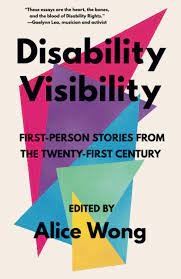
Disability Visibilty
by Alice Wong
One in five people in the United States lives with a disability. Some disabilities are visible, others less apparent—but all are underrepresented in media and popular culture. Now, just in time for the thirtieth anniversary of the Americans with Disabilities Act, activist Alice Wong brings together this urgent, galvanizing collection of contemporary essays by disabled people.
From Harriet McBryde Johnson’s account of her debate with Peter Singer over her own personhood to original pieces by authors like Keah Brown and Haben Girma; from blog posts, manifestos, and eulogies to Congressional testimonies, and beyond: this anthology gives a glimpse into the rich complexity of the disabled experience, highlighting the passions, talents, and everyday lives of this community. It invites readers to question their own understandings. It celebrates and documents disability culture in the now. It looks to the future and the past with hope and love.
2019-2021
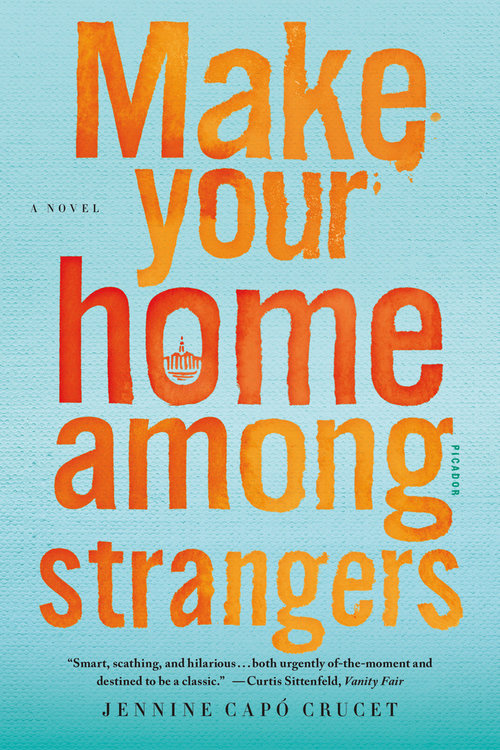
Make Your Home Among Strangers
by Jennine Capó Crucet
When Lizet—the daughter of Cuban immigrants and the first in her family to graduate from high school—is secretly accepted to an ultra-elite college, her parents are furious at her decision to leave Miami. Just weeks before she's set to start school, her parents divorce and her father sells her childhood home, leaving Lizet, her mother, and Lizet's older sister scrambling for a place to live.
Amid this turmoil, Lizet begins her first semester at Rawlings College, but the privileged environment feels utterly foreign, as does her new awareness of herself as a minority. Struggling to cope, she returns to Miami for a surprise Thanksgiving visit, only to be overshadowed by the arrival of Ariel Hernandez, a young boy whose mother died fleeing with him from Cuba on a raft. The ensuing immigration battle puts Miami in a glaring spotlight, captivating the nation and entangling Lizet's entire family. Pulled between life at college and her family's needs, Lizet is faced with difficult decisions that will change her life forever. Urgent and mordantly funny, Make Your Home Among Strangers tells the new story of what it means to be American today.
2016-2018
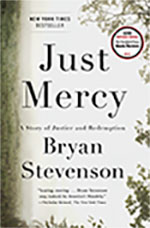
Just Mercy
by Bryan Stevenson
Bryan Stevenson was a young lawyer when he founded the Equal Justice Initiative, a legal practice dedicated to defending those most desperate and in need: the poor, the wrongly condemned, and women and children trapped in the farthest reaches of our criminal justice system. One of his first cases was that of Walter McMillian, a young man who was sentenced to die for a notorious murder he insisted he didn’t commit. The case drew Bryan into a tangle of conspiracy, political machinations, and legal brinksmanship—and transformed his understanding of mercy and justice forever.
2015-2016

Rez Life
by David Treuer
With authoritative research and reportage, Rez Life examines Native American reservation life past and present. Treuer's work weaves history and the present, institutional policy and individual stories in an exploration of family, tribal governance, casinos, wealth and poverty, education, and the preservation of native languages and cultures. This non-fiction selection illuminates misunderstood contemporary issues of sovereignty, treaty rights, and natural-resource conservation.
2014-2015
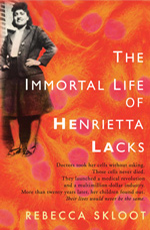
The Immortal Life of Henrietta Lacks
by Rebecca Skloot
Skloot's book tells the story of Henrietta Lacks who in 1951 doctor's removed cancerous cells from her body without her knowledge. Those cells became a critical tool in multiple medical advancements, including the polio vaccine, cloning, and gene mapping. Skloot’s book raises critical questions about race, ethics, and scientific discovering.
2013-2014
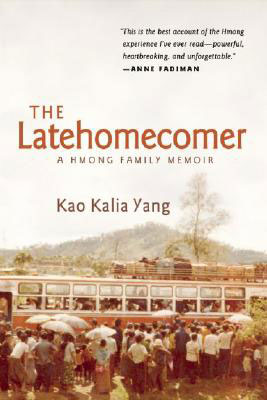
The Latehomecomer: A Hmong Family Memoir
by Kao Kalia Yang
Yang’s memoir tells the story of her family’s journey from Laos to St. Paul, a story that is familiar to thousands of Hmong families who fled massacre in Laos after collaborating with the United States during the Vietnam War. Yang brings her family’s journey to life with detail that illuminates the challenges they faced and the sources of their strength, inspiration, and comfort
2012-2013
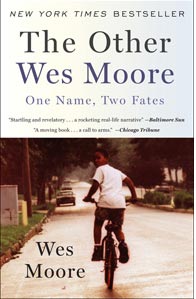
The Other Wes Moore
by Wes Moore
Moore's combined autobiography and biography, with an alternating narrative, tells the story of two boys—both named Wes Moore—growing up in similar Baltimore neighborhoods and the very different paths their lives take. One grew up to be a Rhodes Scholar, decorated combat veteran, White House Fellow, and business leader. The other is serving a life sentence in prison for felony murder.
2011-2012
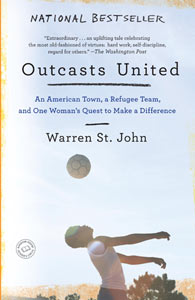
Outcast United
by Warren St. James
Warren St. James expands a story that began as a 2007 New York Times article about the Fugees, a soccer program for boys from families of refugees from war-torn nations who were resettled in Clarkston, Georgia.
Luma Mufleh, the Fugee's coach came to the U.S. from Jordan to attend Smith College and stayed in the U.S. despite her family's expectations. The book follows the challenges the coach and these young people face (which include confronting prejudice, finding funding and a field on which to practice, and living with memories of tragedy in their home countries) as well as the triumphs they achieve on and off the field.
2010-2011
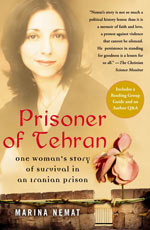
Prisoner of Tehran
by Marina Nemat
In 1982, sixteen-year-old Marina Nemat was arrested on false charges by Iranian Revolutionary Guards and tortured in Tehran’s notorious Evin prison. Her memoir describes political upheaval, repression, and resettlement and explores the circumstances that may force people to leave their home country.
2009-2010
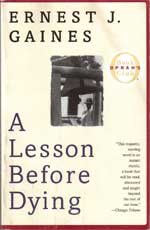
A Lesson Before Dying
by Ernest J. Gaines
In his National Book award-winning book, Ernest Gaines addressed topics that include race, the value of education, inequity in the criminal justice system, and human dignity—areas that are central to the work and values of the College of Education and Human Development.
2008-2009
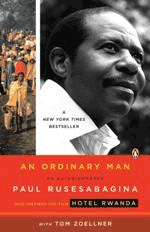
An Ordinary Man
by Paul Rusesabagina
As Rwanda was thrown into chaos during the 1994 genocide, Rusesabagina, a hotel manager, turned the luxurious Hotel Milles Collines into a refuge for more than 1,200 Tutsi and moderate Hutu refugees, while fending off their would-be killers with a combination of diplomacy and deception.